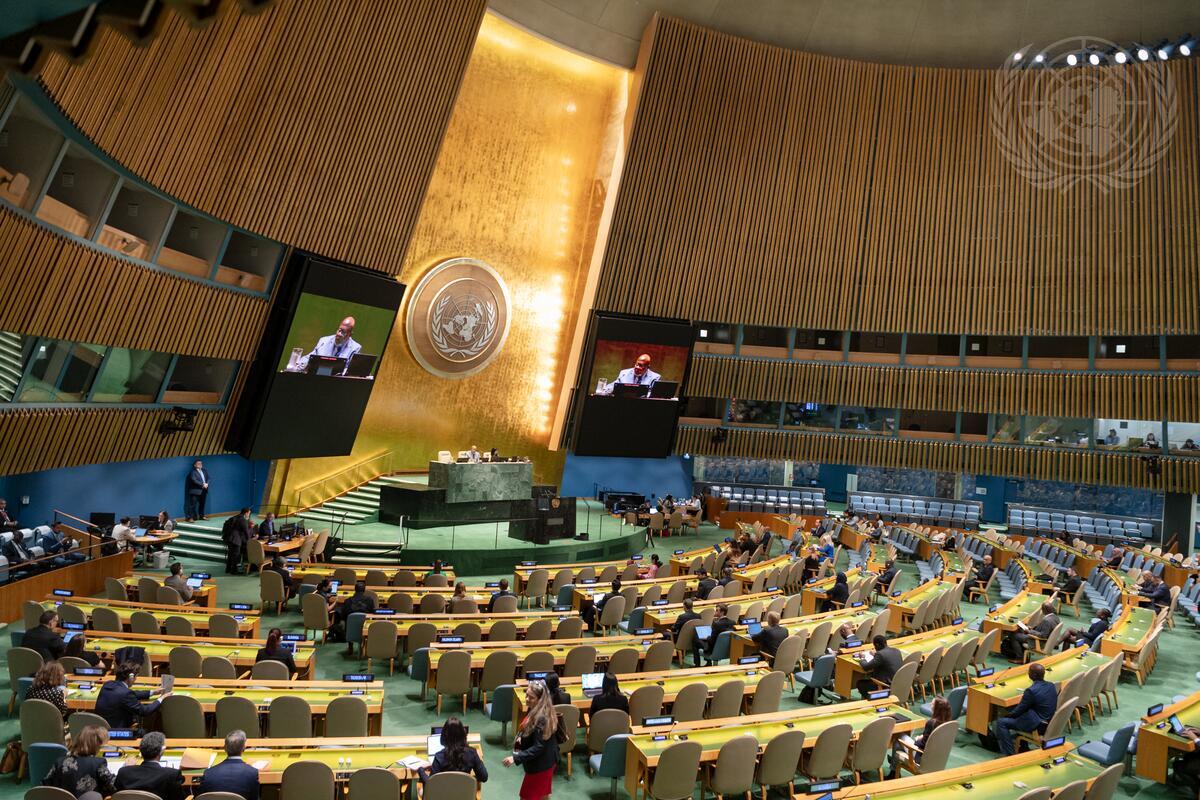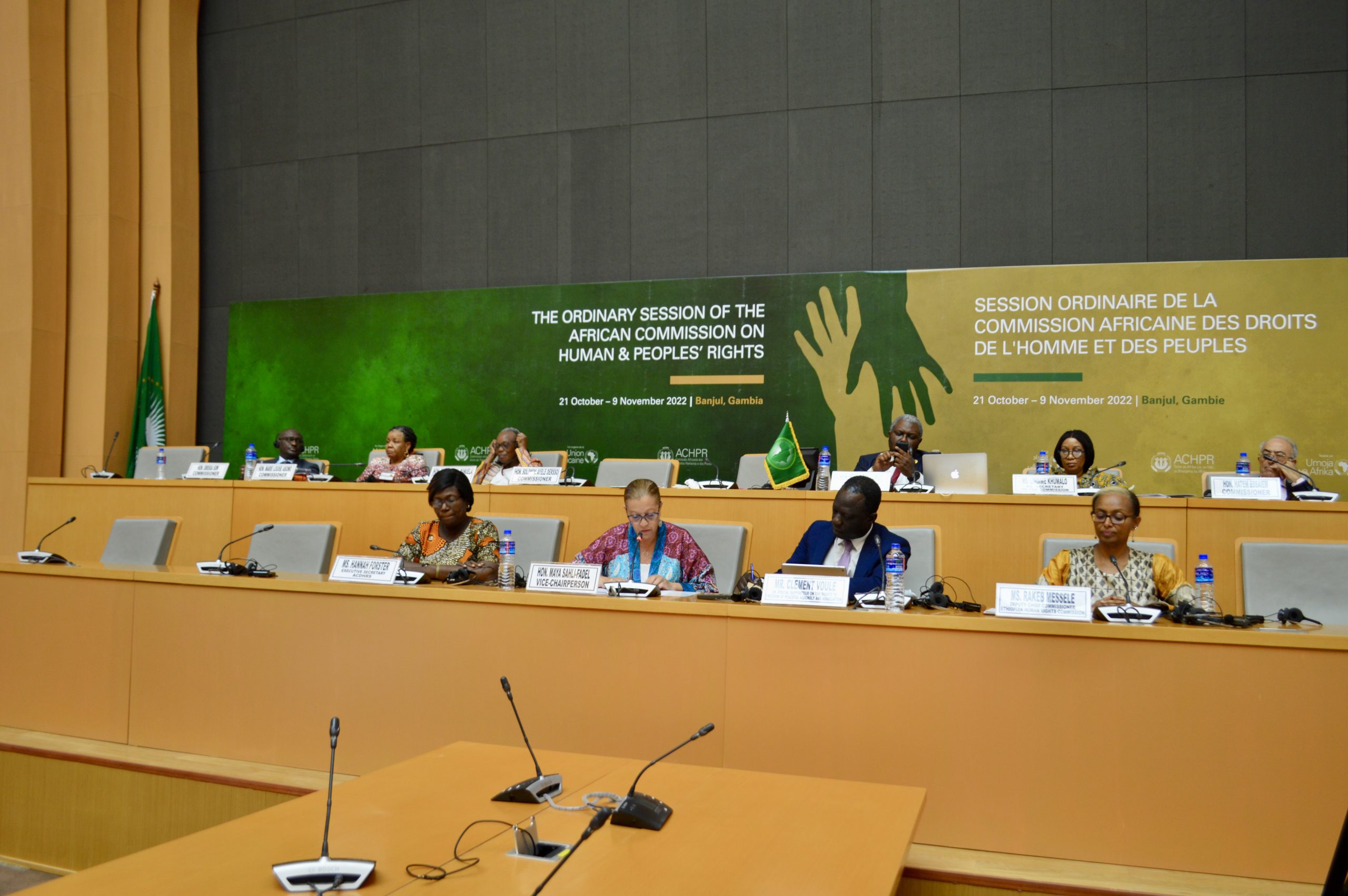Held on 22 October, the panel included Maya Sahli-Fadel, Vice-Chairperson and Special Rapporteur on Refugees, Asylum Seekers, Internally Displaced Persons and Migrants in Africa, Rakeb Messele, Deputy Chief Commissioner of the Ethiopian Human Rights Commission (EHRC), Hannah Foster, from the African Centre for Democracy and Human Rights Studies (ACDHRS), and Clément Voulé, UN Special Rapporteur on Freedom of Association and Assembly.
The Addis-Ababa Road Map (the Road Map), agreed upon in 2012, provides a guiding framework to encourage special procedures mechanisms of the United Nations and the African Commission on Human and Peoples’ Rights to strengthen cooperation. The Road Map targets specific actions to build synergies, develop joint action, and ensure systematic information sharing.
In her presentation, Commissioner Sahli-Fadel outlined a number of achievements of the Road map including regular information sharing, joint public statements and press releases, participation of UN Special Procedures in ordinary sessions of the ACHPR, and participation of AHCPR Commissioners in annual meetings of the UN Coordinating Committee of Special Procedures. She also shared that, though joint visits were envisioned, only two took place due to the financial constraints and formats of visits. She cited the financial constraints of the ACHPR as a challenge for Commissioners to be on the same footing as UN Special Procedures. An additional challenge she cited was not getting enough feedback from the ACHPR on activities under the Road Map. In terms of the next decade, she said the AHCPR and UN should have a set of concerns they will deal with in a proactive manner.
In her presentation, Deputy Chief Commissioner Rakeb Messele noted that both systems consider National Human Rights Institutions (NHRIs) as partners; she cited areas of collaboration but also pointed out that the Road Map does not set out how it can engage with NHRIs, and what NHRIs’ role should be. In terms of ongoing challenges, she cited areas that require further attention, including engagement with NHRIs and the need to specify how NHRIs can support the Road Map. She also shared that harmonisation of both systems would help to reduce the workload of NHRIs and that awareness raising and training should be provided to NHRIs. Finally, she recommended that the mechanisms should consider adopting an annual action plan regarding how NHRIs and civil society organisations could actively support the implementation of the Road Map.
For her part, Hannah Foster of ACDHRS relayed that at the Forum preceding the ACHPR, civil society cited a need for coordination between the two systems and urged them to come together. For instance, States are presenting at the UN, but not at ACHPR. Furthermore, when ACHPR mechanisms go on visits it’s important to ensure that civil society organisations are also invited to participate. Regarding the gap between the number of Commissioners and UN Special Procedures, the ACHPR should consider hiring experts to cover gaps and themes they cannot tackle yet. In addition, fundraising should be done jointly, also with strategic partners who would be willing to support ongoing work between the two institutions. Finally, there is a need to ensure that civil society and other stakeholders are much more involved in this partnership and that they can contribute to it. Foster reiterated civil society’s commitment to this relationship, and urged those present to ensure civil society is not left out.
Finally, Clement Voulé cited country visits as an area for further cooperation. He invited States to facilitate visits and noted that coherent reports regarding implementation can be interesting for States because they get the same vision from both systems. He noted that collaboration allows the two systems to discuss emerging issues and agenda items, and how they can best support States. He also noted that it’s important for States and universities to facilitate academic visits. Finally, he noted that coordination on prevention and early warning needs more work and that resources are needed in order to do more work and develop an annual plan.
Download as PDF




